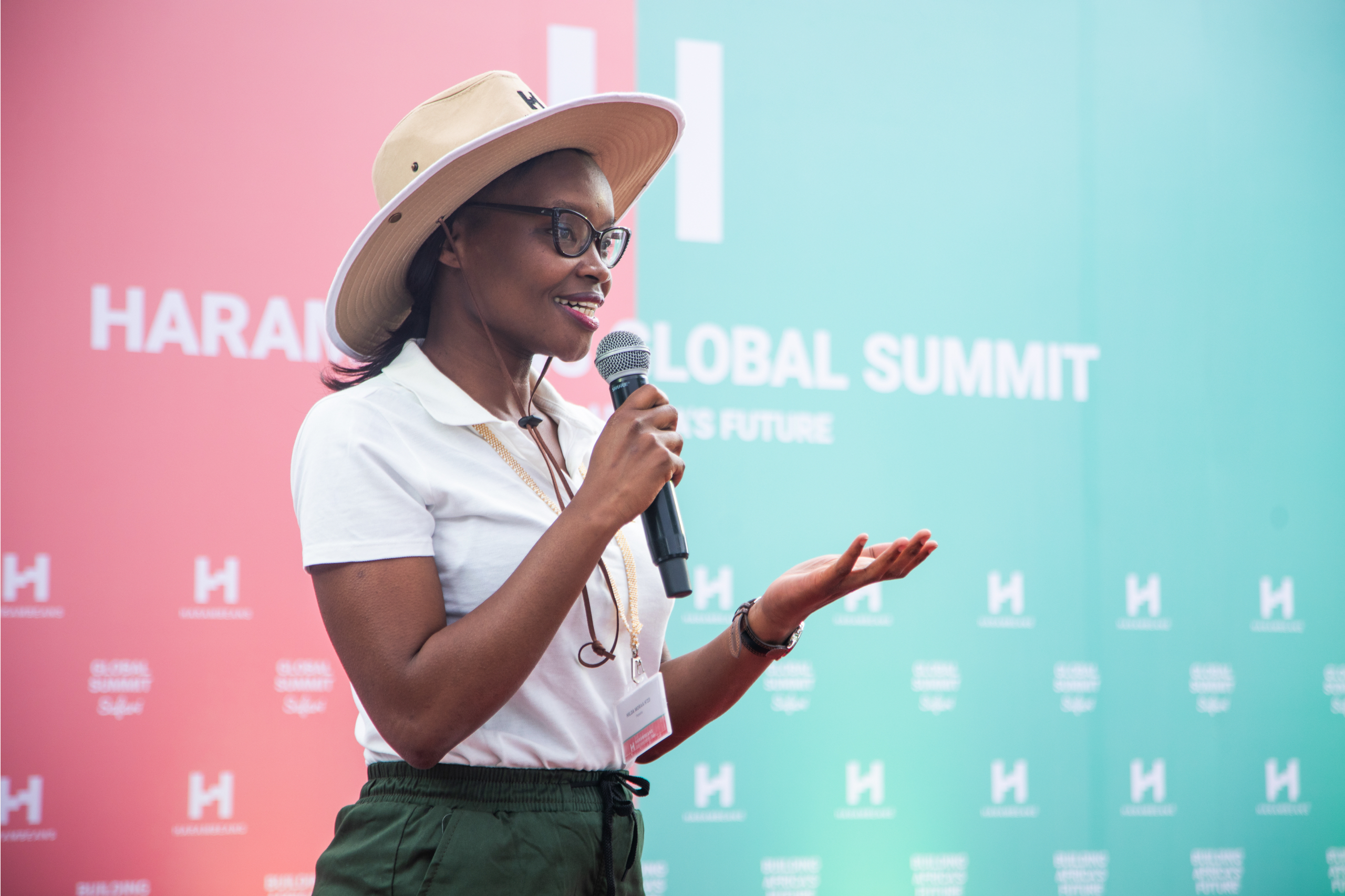Masai Mara, Kenya — Beneath the endless sky of the Masai Mara, where acacia trees dot the plains like punctuation in an unfinished sentence, a new narrative was being written, one of bold entrepreneurs, big ideas, and a battle for Africa’s economic soul. At the 2024 Harambeans Global Summit, a cadre of visionaries gathered not just to talk innovation, but to be it.
In a Guild Session titled “The Nature of Our Battle”, moderator Sneha Shah ushered in a candid conversation with three entrepreneurs who are making markets where none existed: Hilda Moraa H’23 (Pezesha, Kenya), Matthew Henshall H’21 (LessonSpace, South Africa), and Aeko Ongodia H’20 (XENO, Uganda). These Harambeans are part disruptors, part builders, fusing grit with innovation in some of the world’s most undercapitalized regions.
FRONTIER BUILDERS: INVESTING WHERE MARKETS DON’T YET EXIST
In regions long ignored by capital markets, necessity isn’t just the mother of invention, it’s the entire economic plan. For Moraa, that meant building financial infrastructure from scratch. “The rails didn’t exist,” she said of launching Pezesha, a digital lending platform for Kenyan SMEs. “So we had to build them.” What emerged was more than a credit service, it was an ecosystem for businesses once shut out by traditional banks.
Henshall, too, found opportunity in the overlooked. LessonSpace began with a simple premise: quality education shouldn’t depend on geography. In a continent where public systems lag, he created a scalable edtech platform that meets learners where they are, with or without reliable infrastructure.
And in Uganda, Ongodia faced the daunting reality of an unbanked majority. With XENO, he reimagined creditworthiness, drawing on mobile data instead of formal financial histories. “No records? No problem,” he quipped. “We had to build trust before we could build portfolios.”
ADAPT OR DIE TRYING
If there’s a single gospel these Harambeans preach, it’s adaptability. In markets where volatility is the norm and infrastructure is more myth than material, rigid models crumble. The most resilient ventures are the ones that bend, twist, and reconfigure without losing their core mission.
As Henshall put it, “You can’t copy and paste a Silicon Valley solution onto Soweto. You have to localize, then scale.”
Their playbook? Lean into constraint. See friction as fuel. Treat every problem as an invitation to reimagine the system.
RETURN ON INGENUITY: IMPACT & INVESTMENT
Success, in this circle, isn’t counted in quarterly profits but in lives changed. Take Rose, one of Moraa’s earliest clients: once credit-invisible, now a thriving multi-store business owner. “That’s wealth creation,” Moraa said. “That’s nation-building.”
For Henshall, impact shows up in completed lessons, not just downloads. For Ongodia, it’s measured in first-time borrowers becoming employers.
The unspoken truth? In Africa’s underserved markets, ROI stands for Return on Ingenuity.
A NEW PLAYBOOK FOR PROSPERITY
These entrepreneurs aren’t waiting for the world to catch up, they’re rewriting the rules of engagement. They’re betting on the ingenuity of local ecosystems, building infrastructure in real time, and inviting capital to follow value, not the other way around.
As the Masai Mara sun set on the Summit, one thing was clear: Africa’s future won’t be inherited, it’s being built, audaciously and collaboratively, by those bold enough to make markets where others see none.
And they’re not just battling to survive. They’re here to thrive and to build a future where millions can do the same.
